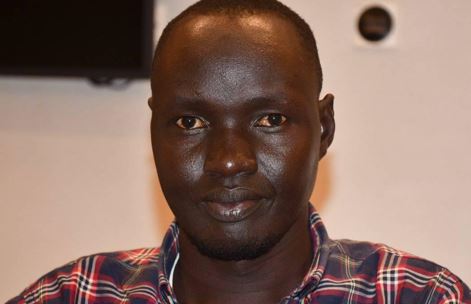BY AWAN ACHIEK
South Sudan’s economy has been under pressure in recent years, with crude oil export revenue dwindling since 2013.
The economic outlook has worsened due to the disruption of crude oil export via Port Sudan amid the ongoing civil war in neighboring Sudan which erupted on 15 April 2023.
The South Sudan Pound (SSP) has continued to lose value against the U.S. dollar resulting in high inflation in the market (rise in prices of basic commodities such as food and fuel).
All the attempts to revive the economy, including auctioning millions of dollars to commercial banks and forex bureaus to curb the pound’s depreciation have yielded no fruits.
In a move to revive the economy, President Salva Kiir has frequently fired finance ministers in search of someone who can reboot the struggling economy.
Since the establishment of an autonomous government in 2005 and after gaining independence from Sudan on 9 July 2011, President Kiir has so far sacked 15 finance ministers.
The president disclosed during the swearing-in ceremony of the new minister of finance and economic planning, Dr. Marial Dongrin Ater, on 11 July 2024 that he was looking for a solution and this is why he often appoints persons to the ministry of finance and he relieves them impromptu.
Kiir said when he succeeds in getting the right person to reboot the struggling economy, he will hold firmly to him and never let him go. However, the problem is not with finance ministers but mismanagement of the revenues collected from both oil and non-oil revenues.
The money collected from non-oil revenue ends up in individuals’ accounts, according to President Kiir.
The question that beggars answer is who are these individuals? President knows them, but he is not doing anything about it for reasons known best to him.
For us to revive the struggling economy, we need to have fiscal discipline to achieve positive economic growth. We can’t continue blaming the finance ministers for our misfortunes. Besides, what are we producing as a country? We depend on imports, almost 90 percent of the products are imported from outside.
Even if we hire Adam Smith, the father of modern economies to revive this economy, he will still fail beyond reasonable doubt because we lack a strong system that supports economic reforms.
Also, we are not a productive economy. The factors contributing to the depreciation of the South Sudan Pound against the dollar include low levels of productivity and overreliance on imports. The high prices of goods in the market are reflected in the high cost of production.
A country that depends on imports requires huge hard currency for trading, and when the demand for dollars is high, the exchange rate goes up which affects the prices of essential food and non-food commodities in the market.
The dollar has become a commodity rather than a medium of exchange. The public demand for the U.S. dollar is so high. People need dollars to buy food, sugar, and even basic items like potatoes or tomatoes, which are often sourced from East Africa or Dubai.
We need to diversify the economic sector if we want to achieve positive economic growth. This country has the potential to achieve rapid economic growth if the government prioritizes investment in agriculture.
When we invest in agriculture, we will have enough supply to meet demand and reduce high dependency on imports.
Besides that, our business sector is dominated by foreigners. Our local traders are not in a position to compete with well-established businesses owned by foreigners. The government should give our traders loans to expand their business so they can compete in the market.
The government also needs to intervene in the market to stabilize the prices and the exchange rate. The government should monitor prices in the market. We can’t assume that we are a free market economy when we are a developing economy.
The only immediate solution to tackle this economic crisis is production not firing of finance ministers.
The author is a South Sudanese journalist and can be reached via: awanachiek1@gmail.com.
The views expressed in ‘opinion’ articles published by Radio Tamazuj are solely those of the writer. The veracity of any claims made is the author’s responsibility, not Radio Tamazuj’s.




